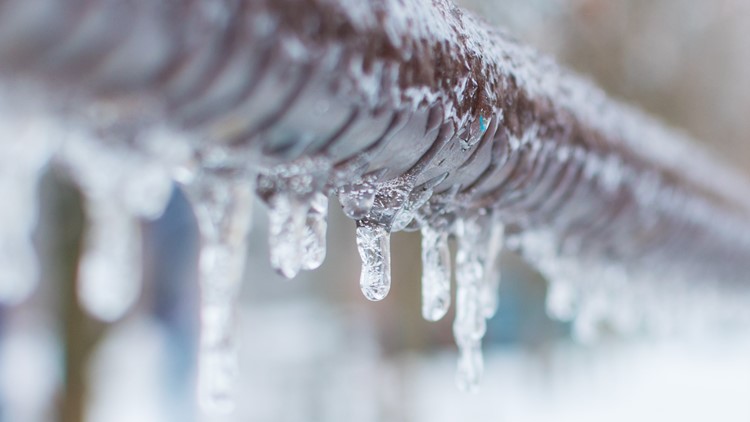This post down the page about How to Prevent Your Pipes From Freezing is without a doubt interesting. Read it for your own benefit and decide what you think of it.

Cold weather can damage your plumbing, especially by freezing pipes. Here's how to prevent it from happening and what to do if it does.
Intro
As temperature levels decline, the danger of frozen pipelines boosts, potentially bring about pricey repair work and water damage. Recognizing exactly how to prevent icy pipes is critical for house owners in cold environments.
Understanding Icy Pipes
What causes pipes to freeze?
Pipes freeze when exposed to temperature levels listed below 32 ° F (0 ° C) for prolonged periods. As water inside the pipes ices up, it expands, putting pressure on the pipe walls and possibly creating them to burst.
Threats and damages
Frozen pipelines can cause supply of water disruptions, building damage, and expensive repair services. Ruptured pipelines can flooding homes and trigger considerable architectural damages.
Indicators of Frozen Piping
Recognizing icy pipelines early can stop them from rupturing.
Exactly how to determine frozen pipes
Seek lowered water circulation from faucets, unusual smells or sounds from pipes, and noticeable frost on revealed pipes.
Prevention Tips
Shielding at risk pipes
Wrap pipelines in insulation sleeves or use warmth tape to secure them from freezing temperatures. Concentrate on pipes in unheated or external areas of the home.
Home heating techniques
Maintain interior rooms effectively heated, specifically areas with pipes. Open closet doors to enable cozy air to distribute around pipelines under sinks.
Safeguarding Exterior Plumbing
Yard hoses and outside taps
Detach and drain pipes garden hoses before winter months. Mount frost-proof faucets or cover outdoor taps with insulated caps.
What to Do If Your Pipelines Freeze
Immediate activities to take
If you suspect frozen pipelines, maintain faucets available to ease stress as the ice melts. Utilize a hairdryer or towels soaked in warm water to thaw pipelines gradually.
Long-Term Solutions
Architectural adjustments
Consider rerouting pipes far from outside wall surfaces or unheated locations. Add additional insulation to attics, basements, and crawl spaces.
Updating insulation
Purchase top notch insulation for pipes, attics, and wall surfaces. Appropriate insulation helps preserve consistent temperature levels and minimizes the risk of icy pipes.
Final thought
Avoiding icy pipes needs aggressive steps and fast responses. By recognizing the causes, indications, and safety nets, homeowners can safeguard their pipes throughout winter.
Helpful Tips to Prevent Frozen Pipes this Winter
UNDERSTANDING THE BASICS: WHY PIPES FREEZE AND WHY IT’S A PROBLEM
Water freezing inside pipes is common during the winter months, but understanding why pipes freeze, and the potential problems it can cause is crucial in preventing such incidents. This section will delve into the basics of why pipes freeze and the associated problems that may arise.
THE SCIENCE BEHIND FROZEN PIPES
When water reaches freezing temperatures, it undergoes a physical transformation and solidifies into ice. This expansion of water as it freezes is the primary reason pipes can burst. As the water inside the pipe freezes, it expands, creating immense pressure on the walls. If the pressure becomes too great, the pipe can crack or rupture, leading to leaks and water damage.
FACTORS THAT CONTRIBUTE TO PIPE FREEZING
Low Temperatures: Extremely cold weather, especially below freezing, increases the risk of pipes freezing. Uninsulated or Poorly Insulated Pipes: Pipes located in unheated areas, such as basements, crawl spaces, or attics, are more prone to freezing. Insufficient insulation or lack of insulation altogether exacerbates the problem. Exterior Wall Exposure: Pipes running along exterior walls are susceptible to freezing as they encounter colder temperatures outside. Lack of Heating or Temperature Regulation: Inadequate heating or inconsistent temperature control in your home can contribute to frozen pipes. PROBLEMS CAUSED BY FROZEN PIPES
- Pipe Bursting: As mentioned earlier, the expansion of water as it freezes can cause pipes to burst, resulting in significant water damage.
- Water Damage: When pipes burst, it can lead to flooding and water damage to your property, including walls, ceilings, flooring, and personal belongings.
- Structural Damage: Prolonged exposure to water from burst pipes can compromise the structural integrity of your home, leading to costly repairs.
- Mold and Mildew Growth: Excess moisture from water damage can create a favorable environment for mold and mildew growth, posing health risks to occupants.
- Disrupted Water Supply: Frozen pipes can also result in a complete or partial loss of water supply until the issue is resolved.
WHY CERTAIN PIPES ARE MORE PRONE TO FREEZING
- Location: Pipes located in unheated or poorly insulated areas, such as basements, crawl spaces, attics, or exterior walls, are at higher risk of freezing.
- Exterior Pipes: Outdoor pipes, such as those used for irrigation or exposed plumbing, are particularly vulnerable to freezing as they are directly exposed to the elements.
- Supply Lines: Pipes that carry water from the main water supply into your home, including the main water line, are critical to protect as freezing in these lines can affect your entire plumbing system.
- Underground Pipes: Pipes buried underground, such as those connected to sprinkler systems or outdoor faucets, can be susceptible to freezing if not properly insulated.
https://busybusy.com/blog/helpful-tips-to-prevent-frozen-pipes-this-winter/

I discovered that piece on Helpful Tips to Prevent Frozen Pipes this Winter while doing a lookup on the internet. Loved our post? Please quickly share it. Let other people discover it. Thanks a lot for your time invested reading it.
Schedule Now!